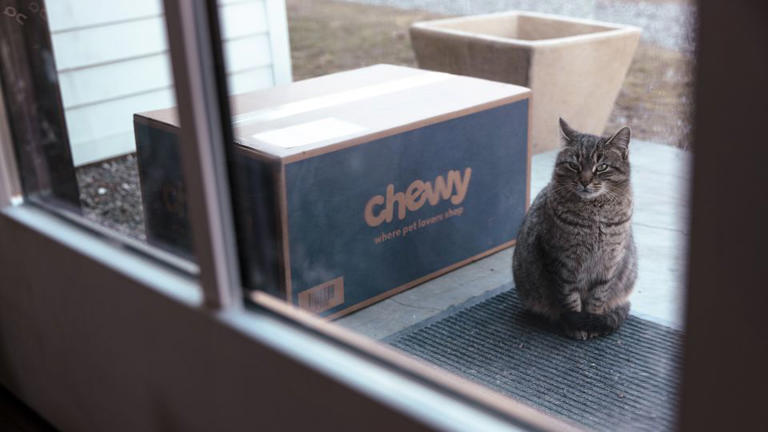Keith Gill, widely recognized as “Roaring Kitty,” has once again made headlines in the financial world with his significant investment in Chewy, marking another chapter in the saga of meme stocks and retail investor influence. Gill’s disclosure of acquiring approximately 9 million shares of Chewy, representing a 6.6% ownership stake, sparked intense market activity and underscored the enduring impact of individual investors on stock prices.
The phenomenon of meme stocks, characterized by their volatile price movements driven by social media chatter and retail investor sentiment rather than traditional market fundamentals, has gained prominence in recent years. Gill first gained widespread attention during the GameStop frenzy in early 2021, where his enthusiastic support and large holdings contributed to a dramatic surge in the company’s stock price. His advocacy for GameStop epitomized a new era where individual investors, empowered by online forums like Reddit’s WallStreetBets, could challenge institutional norms and reshape market dynamics.
Gill’s journey from a relatively unknown retail investor to a central figure in the meme stock revolution reflects broader shifts in financial markets. His decision-making, transparent disclosures, and public statements on platforms like YouTube and Twitter have not only influenced stock prices but also ignited debates on market transparency, regulatory oversight, and the democratization of finance.
The impact of Gill’s investments extends beyond mere stock price movements. They embody a growing trend where social media platforms serve as catalysts for market speculation and collective action among retail investors. The allure of meme stocks lies not just in potential financial gains but also in the sense of community, empowerment, and defiance against conventional market wisdom that they represent.
Chewy, a prominent online retailer of pet supplies co-founded by Ryan Cohen, who later became known for his involvement in GameStop, became the focus of market attention following Gill’s disclosure. The stock’s price volatility on the heels of his investment highlighted the rapid and sometimes unpredictable nature of meme stock trading. Such stocks often experience exaggerated swings as individual investors rally around specific narratives, personalities, or perceived opportunities.
Gill’s SEC filing, where he humorously checked the box stating “I am not a cat,” echoed his earlier congressional testimony during the GameStop hearings. This playful reference to an incident where a lawyer accidentally appeared with a cat filter in a virtual court session underscored Gill’s unique blend of financial acumen and internet culture. It also served as a reminder of the viral moments and broader cultural impact that his actions have had within and beyond financial circles.
Beyond the individual anecdotes, Gill’s story reflects deeper questions about the evolving role of retail investors in financial markets. The rise of platforms like Robinhood and the democratization of stock trading have empowered a new generation of investors, enabling them to participate more actively in markets traditionally dominated by institutional players. This shift has not only democratized access to financial markets but also reshaped investment strategies and market behaviors.
Critics argue that the volatility associated with meme stocks poses risks, both for individual investors who may be drawn into speculative frenzies and for market stability more broadly. Regulatory scrutiny has intensified amid concerns about market manipulation, transparency, and investor protection in an increasingly digital and interconnected financial landscape.
However, proponents of meme stocks argue that they represent a form of market democratization and a rebuke of Wall Street elitism. They view these stocks as a means for ordinary investors to challenge established norms, express dissent, and potentially achieve financial independence. The debate over the societal and economic implications of meme stocks reflects broader tensions between innovation and regulation, individual empowerment and market stability.
Gill’s influence on Chewy’s stock price underscores the complex interplay between individual actions and market dynamics. His disclosures, while transparent, also highlight the power of influential personalities in shaping market sentiment and investor behavior. The phenomenon of meme stocks illustrates how narratives, personalities, and social media can converge to amplify market movements and redefine traditional notions of investment value.
Looking ahead, the future of meme stocks remains uncertain. Regulatory responses, technological advancements, and evolving investor behaviors will continue to shape the landscape of financial markets. The lessons learned from episodes like the GameStop saga and Gill’s investments in Chewy will inform discussions on market efficiency, investor education, and the role of digital platforms in democratizing finance.
In conclusion, Keith Gill’s journey from retail investor to meme stock icon exemplifies the transformative power of individual investors in today’s financial markets. His actions have sparked debates, influenced market trends, and challenged conventional wisdom, highlighting both the opportunities and risks associated with the democratization of investing. As the landscape continues to evolve, the legacy of Gill and others like him will continue to shape the future of finance, emphasizing the enduring impact of retail investors on global markets.
